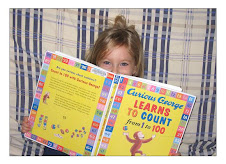
Bibliographic Information
Koertge, Ron. THE BRIMSTONE JOURNALS. Cambridge, MA: Candlewick Press (2001). ISBN: 9780763613020.
Summary and Analysis
The poems alternate between 15 teenagers focused on school, relationships, hobbies, parents, the world, and the future. Crushes, anger, insecurities, sex, God, and friendship are repeating themes, but every few pages it gets back to guns. Whether one is thinking of violence, holding a gun, reporting the inhumanity in the world, it is reoccurring as are racist thoughts, religious ones, and lots of judgment. The teenagers share many qualities, mostly confusion and a loathing of homework, but the feelings of insecurity are found in most of them. Each passage seems more conversational or that of a journal entry than a traditional poem, which means it is far more likely to appeal to a teenager. One of the styles that makes this seem it could be real teenagers talking is Neesha's entries which take on the shorthand of text messages. Though when she presents a personal poem to the class, it is perfectly phrased, grammatically correct, and exhibits a strong voice. It was a passage that was unique as it interrupted the flow of the collection and was when someone stood up to the racist student who was making "the list." It was a different tone from her point of view as well as the overall tone. There are not rhymes or flowing stanzas, but simply a voice coming out with a message.
The book is divided by parts, each leading up to a possible school shooting, building friendships, and stress. As each poem alternates between perspectives, the reader can find stereotypes, fear, loneliness, and confusion as to why they or someone else is treated how they are treated. The reader finds that even the strongest, most arrogant person has insecurities, and those that appear "perfect" are not. Insecurities are a similar thought from the jock, to the rich new kid, to those picked on: the nerds, the overweight, and the minorities. With each point of view, the reader learns more about that person and quickly understands people are not what they seem and everyone has issues.
Some poems evoke more emotions, specifically the ones focused on violence, self loathing, molesting, and fear. Yet there are always a few hopeful passages as budding relationships deepen and friendships form between people who are opposite in heritage, background, socioeconomic status, but share a love of music, for example.
Highlighted Poem
This is a Lester passage. Lester is the overweight, picked on boy who is befriended by the guy who is planning "the list" for his school shooting. Lester is also the boy who tells the cops and keeps the shooting from happening.
"I'm in the cafeteria the other day
and I'm thinking how tired I am of eating
by myself.
Kitty's more pathetic than I am. At least
I eat what I buy. Joseph with his beard looks
like one of those bushes he's trying to save
from evil land developers. Sheila is crying
about her girlfriend who's all over Damon.
I figure, What the hell. Sit with Meredith.
Turns out she is really pretty nice. I mean,
she's smart and funny and she talked to me
like I was worth talking to.
I know her reputation, but what about Rob?
He keeps score and he's called a stud.
Meredith sleeps with a few guys and she's a slut.
Anybody called her that while I was around,
I wouldn't even tell Boyd. I'd put the hurt
on him myself."
The Brimstone Journals, page 83.
Connections
As these poems are similar to journal entries of teenagers, teens would likely relate to at least one of the characters entries. They could write an entry about their school, classmate, teacher, struggles, or everyday teen angst. They could also expand on something mentioned in one of Koertge's poems if too shy to create their own. Because each poem offers a different perspective (jock, shy teen, bully, etc), it would help the readers consider different personalities and what it is like to be that kid at the school. Perhaps a discussion focusing on the poem least like oneself would not only get a conversation of poetry started, but would also begin a conversation about tolerance and kindness. This would provide students the opportunity to not only think about someone else's point of view, but to try and write in another voice.




No comments:
Post a Comment